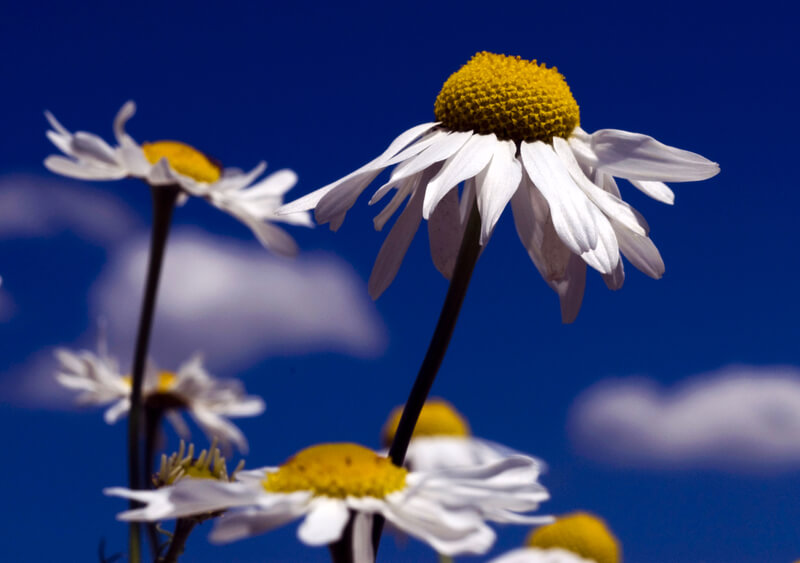Chamomile is a popular herbal tea often used to help people sleep. It contains a compound called apigenin, which is the active ingredient. It can be brewed using fresh or dried chamomile flowers.
Most chamomile tea is consumed at bedtime. It has been used since ancient times to help people sleep and to soothe anxiety.
For some—in Asia and Africa especially—chamomile tea is an anytime-of-the-day drink. That’s because it was shown in one particular study to control an overall measure of blood sugar pretty (HbA1C) much as well as more conventional blood sugar treatment in rats (Kahn, et al., 2014).
When considering it as an herbal medicine, chamomile is loaded with curative potential. In addition to helping people sleep, it’s also been known to soothe cramps and improve digestion.
Considered all together, it makes sense that drinking chamomile tea before bedtime would help someone sleep.
Yet, if you don’t have diabetes, if you don’t have a problem with spikes in your sugar, or if you have access to medicines like insulin, you wouldn’t necessarily want to drink chamomile tea as prepared in the study on the diabetic rats.
In perusing the research, they note that they steeped a single, standard tea bag in 150 mls of water for 15 minutes with a cover over the cup. Then they allowed it to cool. Prepared this way, they were getting every bit of the active ingredient (apigenin) out of the flowers.
That’s not palatable to most people. I, and most other people, don’t prepare chamomile tea that way.
Then, most people aren’t going to drink it twice a day. Most drink it just once.
Other times of the day are better for other teas with caffeine.
I find chamomile to be a reliable member of an arsenal of bedtime, sleep-inducing herbal teas.
Chamomile tea for sleep
For good, typical sleep-inducing results, don’t use chamomile for sleep every night. That will lead to habituation. It just won’t work as well. Steep your high-quality chamomile teabag for 3-5 minutes in hot water. Be sure to alternate chamomile tea with others.
References
Khan, S. S., Najam, R., Anser, H., Riaz, B., & Alam, N. (2014). Chamomile tea: Herbal hypoglycemic alternative for conventional medicine. Pakistan Journal of Pharmaceutical Sciences, 27(5), 1509+.
Also on the blog:
James Cobb RN, MSN, is an emergency department nurse and founder of the Dream Recovery System. He has over 50 years of experience in sampling sleep-promoting snacks at bedtime. His goal is to provide his readers with simple, actionable ways to improve their health and maximize their quality of life.
We use some affiliate links. If you click on a link and make a purchase, we may receive a commission. This has no effect on our opinions.
